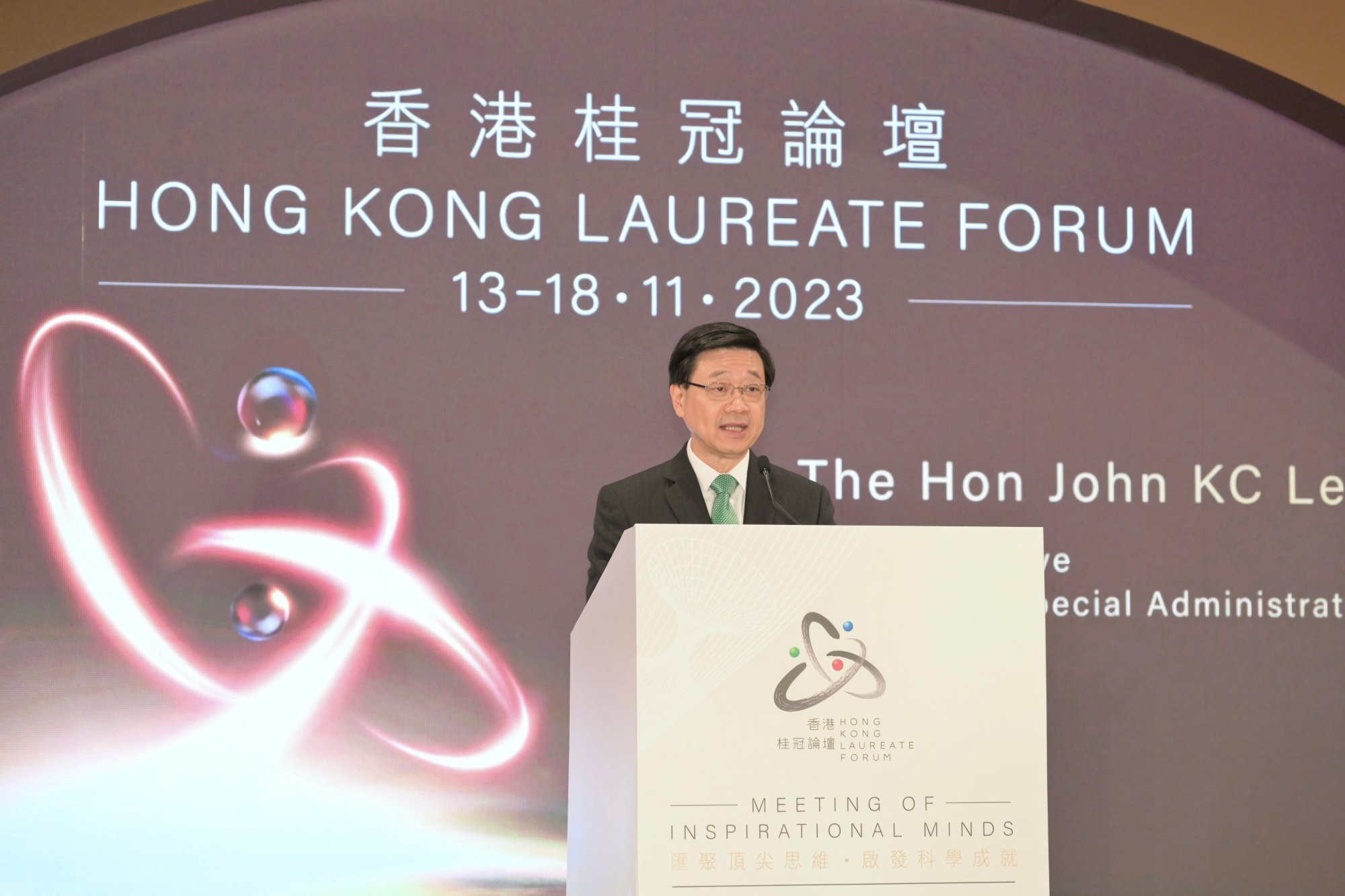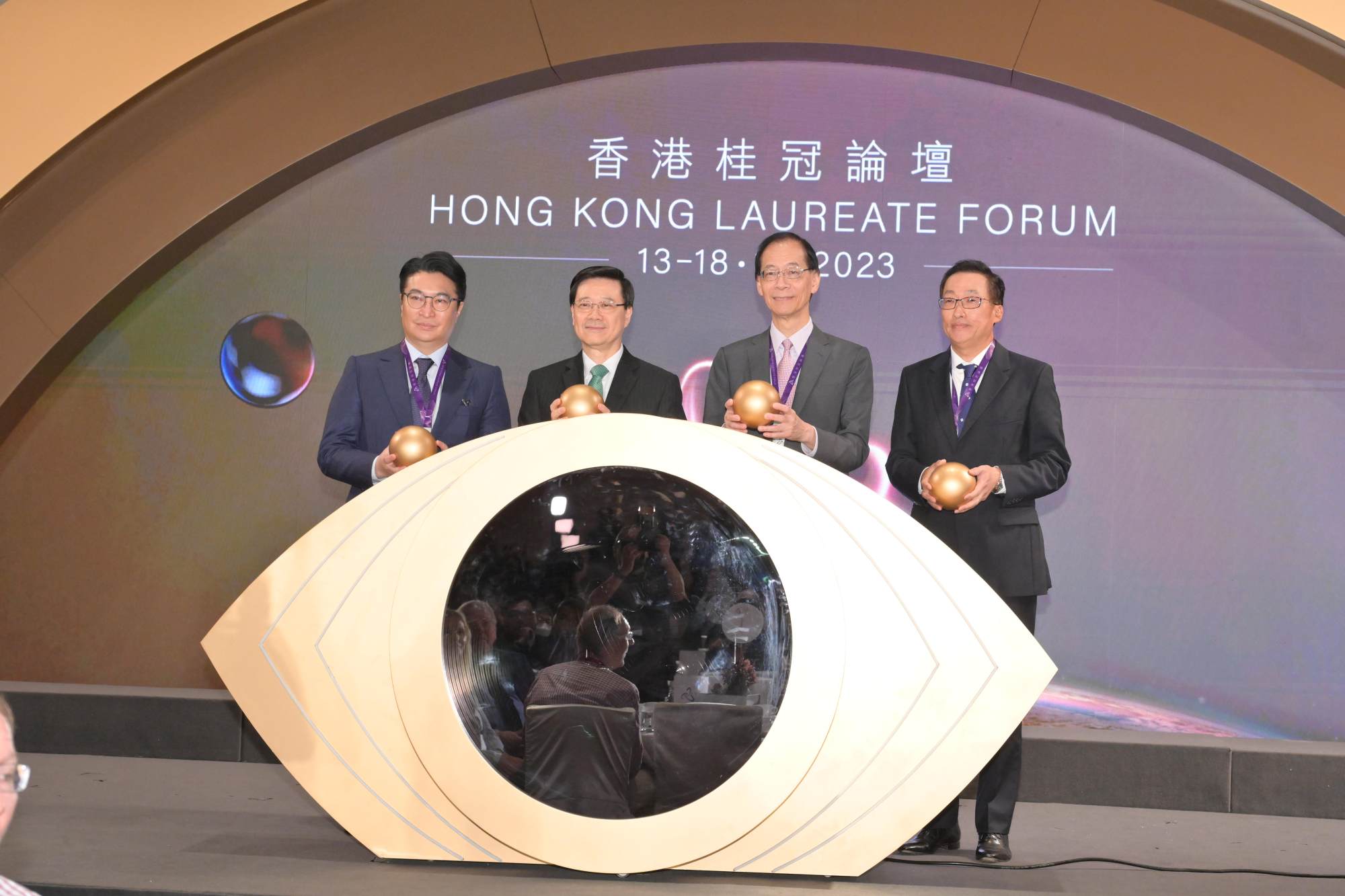
Inaugural Hong Kong forum brings together 20 laureates and 200 young scientists in bid to raise profile of city
- Event organiser Timothy Tong is ‘quite confident’ the Laureate Forum will lure more talented scientists to Hong Kong
- Event will see more than 20 Shaw Prize laureates meet about 200 young scientists from 30 countries and regions from around world
An inaugural high-level forum attended by 20 laureates and 200 young scientists from around the world began in Hong Kong on Monday, with the organiser saying the event aimed to motivate students to develop an interest in science and consider it for a career.
Timothy Tong Wai-cheung, chairman of the group organising the Hong Kong Laureate Forum, said the international background of attendees was proof of the city’s attraction to overseas talent.
“What we do today, I am quite confident that we will highlight the importance of science and … [scientists’] achievements, and also highlight Hong Kong as a place to promote science and thereby attract more talented scientists to come to Hong Kong,” he said.
Tong said he hoped the city’s attraction for overseas talent would continue to grow in the coming years, so that Hong Kong became known not only as an international financial centre, but also as a global hub for science, technology and innovation.
Tong said the city’s international nature and its number of top academic institutions were why talent was coming from overseas.

The six-day forum was originally scheduled for November 2021 but was delayed twice due to the Covid-19 pandemic. It is being organised by the Hong Kong Laureate Forum council.
Chief Executive John Lee Ka-chiu said in a keynote speech that Hong Kong would continue to be a world-class collaboration hub for inspirational minds.
Martin Lee Ka-shing, director of the Lee Shau-kee Foundation which sponsored the forum with HK$80 million, said talented young people would participate in the long-awaited exchanges.
“We believe innovation is the key to resolving life’s many riddles and mysteries, especially in the fields of science, medicine and technology,” said Lee, chairman of the Henderson Land Group.
The event brings together more than 20 Shaw Prize laureates in the fields of astronomy, mathematical sciences, and life sciences and medicine. They will also meet about 200 young scientists from 30 countries and regions from around the world.
The Shaw Prize was set up in 2002 by the late entertainment tycoon and philanthropist Sir Run Run Shaw to honour individuals from around the world who have made outstanding contributions to civilisation.

Tong, who was speaking to the Post on the sidelines of the event, said the goal of the forum was to foster an atmosphere in the city where young people would take a greater interest in science and even pursue it as a career.
“Our ultimate goal is to try and help Hong Kong build up a much stronger atmosphere for getting young people to take an interest in science,” he said.
The government has embarked on an all-out effort to attract talent to the city and counter an emigration wave during the pandemic years and a low birth rate.
Authorities are also stepping up efforts to transform the city into an international innovation and technology centre, with the government putting HK$10 billion into accelerating new industrialisation in addition to building a microelectronics centre in Yuen Long by 2024.
While authorities had been putting significant resources into promoting Hong Kong as a centre for science and technology, the effort was “never enough”, Tong said.
Authorities should provide more funding to science and technology, but in the form of programmes that included specific goals, such as increasing technology transfer, he said.

